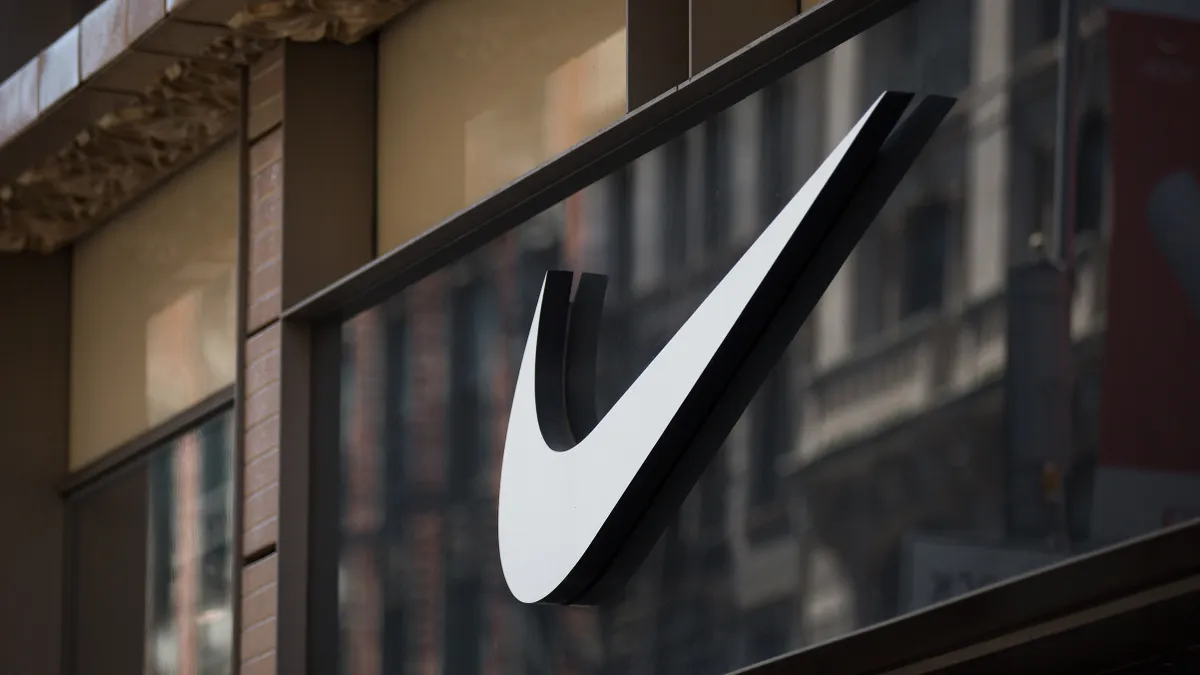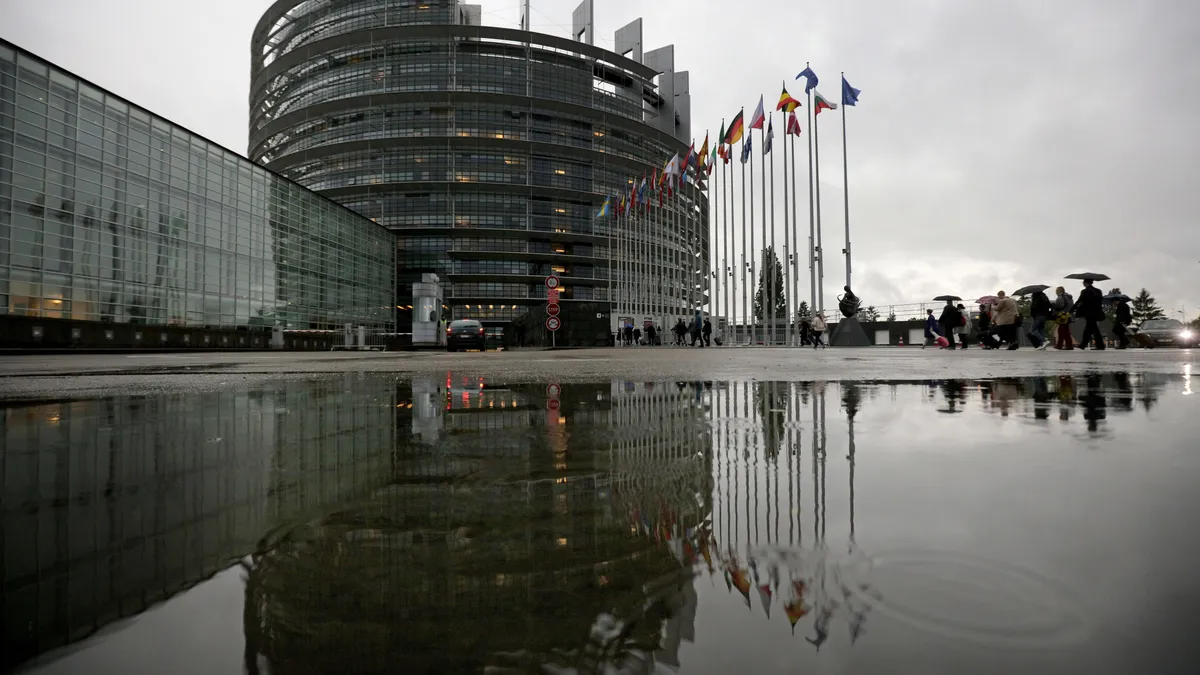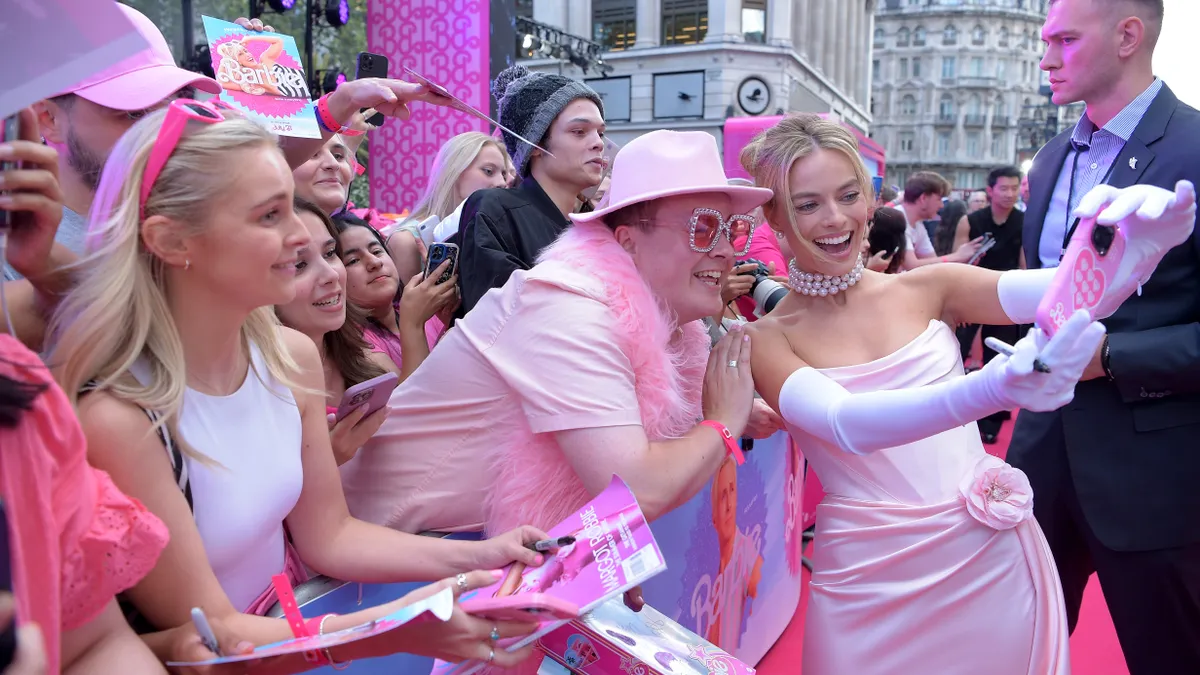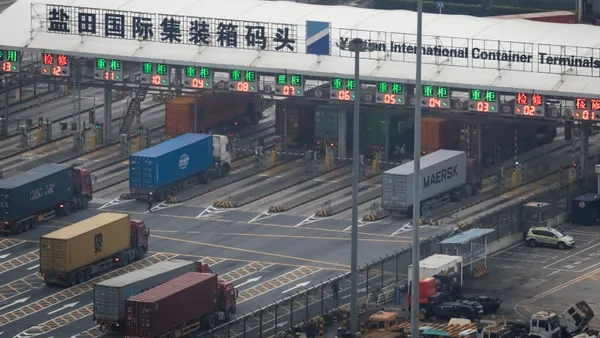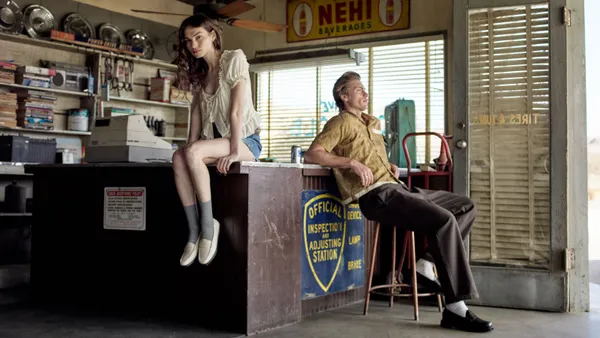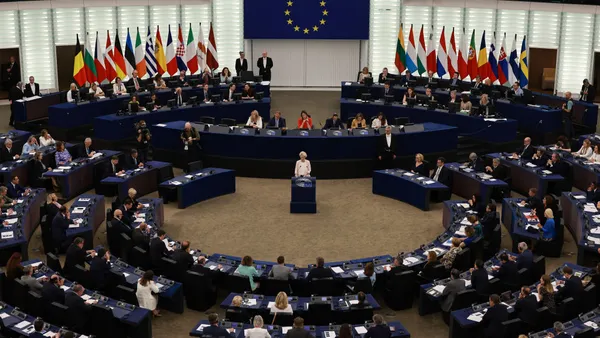Dive Brief:
- Sportswear giant Nike is facing pressure from investors, human rights groups and unions ahead of its annual general meeting this week over the alleged nonpayment to workers at two of its suppliers.
- The concern centers on entities owned by the Ramatex Group including Violet Apparel in Cambodia, which dismissed all the factory’s 1,284 workers in 2020 without severance pay, and Hong Seng Knitting factory in Thailand, where workers weren’t paid legally owed partial wages during a Covid-19 shutdown in 2020, according to a letter to Nike from investors.
- The investors are asking the company to “provide access to remedy if the company has caused, contributed or is linked to negative human rights impacts,” and enable payment to workers at the Violet Apparel factory and the “under-payments” at Hong Seng Knitting. Combined, these requests amount to $2.2 million.
Dive Insight:
The letter, which is addressed to Nike CEO John Donahoe, was written by Kees Gootjes of ABN AMRO Bank and Martin Buttle of CCLA Investment Management. More than a dozen other investors have signed on.
“We are therefore concerned that Nike has not moved to take up these issues with its suppliers as these cases appear to be a clear case of suppliers violating Nike’s standards, international norms, and Cambodian and Thai law,” they wrote.
It cites a June report from the Worker Rights Consortium which states that Violet Apparel manufactured Nike-branded clothing until 2020 through a subcontract agreement with sister facility Olive Apparel. Ramatex’s dismissal of the workers with less than one week’s notice without paying compensation violated both Cambodian law and what Nike’s stated policies require, per the report.
Nike has said it hadn’t sourced products from Violet Apparel since 2006, and that it had conducted an investigation which found no evidence that its products had been manufactured there in “recent years,” according to the WRC report. The report also stated that “Violet Apparel manufactured Nike products as a subcontractor for its sister Ramatex facility — and publicly disclosed Nike supplier — Olive Apparel, from no later than 2018 up until a few months before Violet Apparel’s closure in 2020.”
“Nike is deeply committed to ethical and responsible manufacturing and making sure everyone who makes our products are valued and treated fairly and with respect,” a Nike spokesperson said in an email to Fashion Dive. “We conducted independent investigations of both these allegations in 2020 and in the case of Violet Apparel we found no evidence to support the claims. Nike has not sourced product from Violet Apparel since 2006 and they are not authorized to manufacture Nike product. In the case of Hong Seng, after an independent third party investigation and legal review, all workers have been compensated in accordance with local law and Nike’s Code of Conduct and there is no evidence that workers are owed back-pay or compensation.”
In the investor letter, Gootjes and Buttle question why Ramatex wasn’t in a position to notify Nike for a license to subcontract to Violet Apparel, which raises questions about its due diligence in monitoring its production, they wrote.
“Nike’s conclusion that Nike goods were not produced at the factory is based on an investigation after the Violet Apparel factory had already closed and did not include speaking to workers,” the investors wrote. “This is troubling both because of the manner and outcome of the investigation, as well as the conclusion by Nike that it is not responsible for the rights of workers manufacturing its products. For investors, there seems to be enough evidence that Nike has a direct relationship with the rights holders at Violet Apparel, and we urge Nike to take up its responsibility.”
A group of labor rights organizations also wrote a letter to Nike over these issues, calling on it to pay these workers. Signees on this letter include the Asia Floor Wage Alliance, Cambodian Alliance of Trade Unions and the Clean Clothes Campaign.
“Nike falsely positions itself as a supporter of women’s empowerment, while holding back $2.2 million they owe to vulnerable women of colour who made their clothes,” Bogu Gojdz, campaign coordinator at the Clean Clothes Campaign, said in an emailed release to Fashion Dive. “There is nothing but cruelty that stands in the way of Nike paying these workers what they are owed, everyone can see it, Nike and its Board of Directors must act immediately to provide justice to these workers.”



